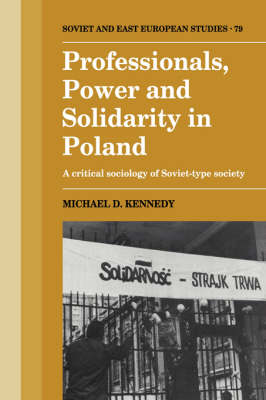The Solidarity movement of the early 1980s not only triggered a transformation in Polish society, it forced a fundamental reconsideration of the nature of socialism throughout the Soviet Union and Eastern Europe. Seen as one of the most important social movements of the twentieth century, Michael Kennedy develops a theoretical conception of Soviet-type societies by analysing Solidarity's significance. He explains the background to the nature of the conflict between Solidarity and the authorities and considers the implications of Solidarity's struggle for the theory of the Soviet-type system's reproduction and transformation. Then, the internal constitution of Solidarity in terms of gender and, in particular, cross-class alliances is examined, which is followed by the implications of his analysis both for understanding perestroika in the Soviet Union and more generally for reformulating a critical sociology of Soviet-type societies.
- ISBN13 9780521390835
- Publish Date 14 February 1991
- Publish Status Active
- Out of Print 6 June 2022
- Publish Country GB
- Imprint Cambridge University Press
- Format Hardcover
- Pages 444
- Language English
